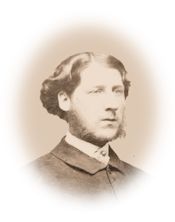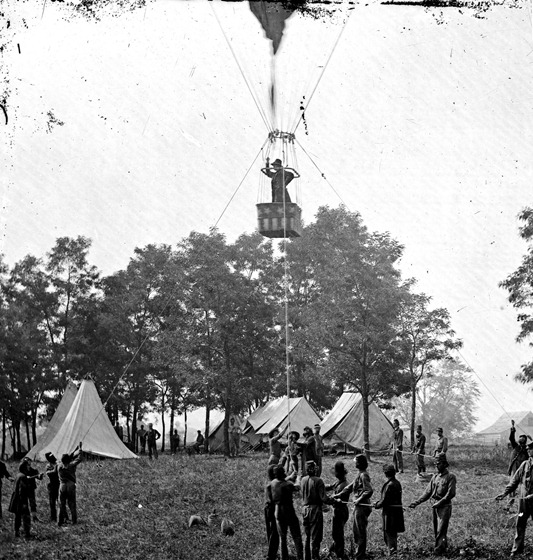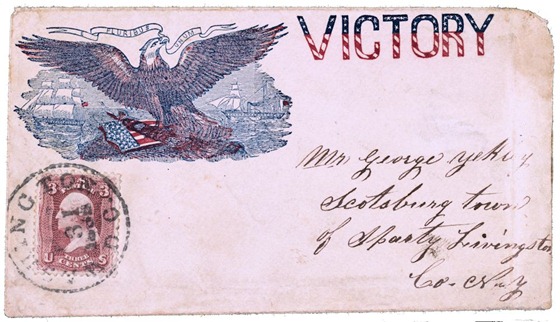Charles William Woolsey to New York Evening Post.
Sanitary Commission, Floating Hospital, Pamunkey River,
Off White House, Va., May 31, 1862.
The work of the Sanitary Commission, as connected with the army of the Potomac, is just at this time, as you doubtless know, a most important and indispensable one. More than two thousand sick and wounded men have been shipped by the Commission to New York, Washington and Boston during the past month, and it is safe to say that the lives of hundreds have been saved who would otherwise have died in camp and on the march.
The vessels used by the Commission are chartered by the government, and are first-class ocean steamers and Sound boats. They are supplied with all the necessary hospital apparatus at the expense of the Commission, and are furnished, so far as possible under the circumstances, with every convenience for the transportation of the sick, who are too often victims of neglect in regimental sanitary regulations. If your readers care to know something about the detail of management on board a hospital ship, let me give them briefly the program of a single day’s routine—a routine in the case of the majority on board, let them remember, of inevitable and monotonous suffering or sleepless pain.
Four bells,—but the day does not begin then, it is only a continuation of yesterday and the day before. On a hospital ship night and day are alike to all hands, and “on duty” for a nurse means only his “watch,” whether it comes at noon or midnight. Dr. Some-one is medical and military chief, and every well man on board, except the ship’s officers and crew, is subject to his authority. His command consists of four or five surgeons and physicians, a commissario-quartermaster, a purser perhaps, a varying number of volunteer nurses, eight or ten contrabands, and from one hundred to four hundred or five hundred sick men, according to the capacity of his vessel. On the ocean steamers the greater number of bunks are between decks, and roughly built of secession lumber, in tiers of three ranged on either side the length of the ship, and a double row down the centre. On this deck also are a dispensary, with an apothecary to preside, and a room or space reserved for the exclusive use of the lady nurses.
The sick are divided into several wards, each with a ward-master, generally a medical student, and the watch is arranged by the medical chief—the twenty-four hours being divided into three watches, of six hours each, and two dog-watches, of three each. Let us divide all the doctors and nurses on board into two squads, or reliefs, called A and B. Squad A relieves squad B at seven in the evening; B goes to bed and quickly to sleep until one o’clock, when it relieves A; A turning in until 7 A. M., when it relieves
B again, and so on. The dog-watches in the afternoon reverse the order, so that neither squad may have the same hours of watch two successive nights. The satisfactory arrangement of these watches to all parties concerned is no small matter.
The bulletin at the main stairway displays a record of the ward arrangements for the day, the hours of the house diet, the most explicit directions in case of fire, and more than the usual number of warnings with respect to the use of lights in the cabins.
By far the most formidable part of the work is getting the sick men on board and then landing them. The steamer lies out in the stream, and the sick men are in their camp hospitals on shore, it may be several miles inland, or perhaps left exhausted on the roadside, in the advance. A day or two ago thirty-six men arrived on the shores of the Pamunkey who had fallen off from the army, in this way, unable to proceed from fatigue and exhaustion. They said they had walked fourteen miles since midnight, and had had no food for three days. When they applied at the Government tent hospital at White House for food and shelter they were told that there was no room for them, and that they had better look along the shore for a hospital ship. In this condition they fell into the hands of the Sanitary Commission, were transferred to the Spaulding, and were speedily fed, clothed, washed and convalescent. Up to the 29th instant General Casey’s division had lost in this way three thousand nine hundred men since leaving Yorktown.
The difficulty is to get the sick men from the land to the floating hospital—from the hands of the government to the Sanitary Commission. Convalescents can walk and in some measure help themselves. The sick must be lifted, (and not always with the tenderest care,) first into an ambulance, then jolted to the shore (even ambulances jolt in Virginia, those vehicles that offer every facility for accidental death), then put on a tug to be taken out to the steamer.
On the Sound boats the process of embarkation is comparatively easy, as the decks are low. In the case of an ocean steamer a tackle is rigged from above, fastened to a fixed frame into which the stretcher and all are placed while on the deck of the tug. The tackle is then hoisted, with the sick man and his effects, to the upper deck. Before being lowered to the receiving doctor below, who assigns him to a berth, all his baggage, including his gun and blankets—new blankets being furnished him—is taken from him and firmly tied together. His rank, name, regiment, company and postoffice address are noted down, and a number assigned to him and a corresponding number pasted on his baggage. In this way his baggage is cared for, and much confusion, which without some such system would prevail, is avoided.1
Necessarily, now and then, a blanket or pair of shoes loosely packed, or a likeness carelessly put in the haversack, is lost or unclaimed. Occasionally a soldier, much to his chagrin, may be obliged to carry home some one else’s gun, new, perhaps, from the factory, instead of his own trusty rifle that has shot, to his certain knowledge, at least half a dozen rebels. Jones, of the Third Maine Cavalry, who is stout, may be obliged to put up with a coat belonging to Jenkins, of the Tenth Indiana Infantry, who is slim, etc.; but, in the main, the men have their baggage returned to them intact at the end of the journey.
A detail of men sometimes accompanies the sick, who are employed as nurses. When every bed is filled and order begins to come out of the seeming chaos, a meal is served to those who need it, the gangway is lowered, the whistle blows, and the ship, with its strange cargo, is in motion for New York or Washington. The doctor makes his rounds, giving particular directions about the sickest, and the watch begins. Down the York river, round the cape, and so, with the flag of the Sanitary Commission waving at the mast-head, out to sea. Convalescents, who are well enough, smoke their pipes on deck, and in picturesque groups talk over the wonderful scenes they are leaving, or discuss the superior merits of their several regiments.
Up stairs, we are a lot of soldiers off duty, on a pleasure trip down a peaceful little Virginia river. Down stairs, how different! Occasionally a death occurs on the passage (though the proportion is very small), and a vacant bed in the long line marks the soldier’s last resting place while living. His knapsack and gun are taken by some friendly hand to be returned to his family, and thus the soldier ends his fight—sadly, yet in a noble cause; his heroic aspiration crowned so soon with their utmost result.
A dark side there must necessarily be, but a bright side is by no means lacking. Chloride of lime and the lady nurses contribute largely to the brighter half. Whitewash and women on a hospital ship are both excellent disinfectants. Men are nurses of the sick only by study and experience, women by intuition. A man can dress an ugly gun-shot wound or prescribe for a typhoid case better, perhaps, than a woman, but a woman’s hand must knead and smooth the bed that supports the wounded limb, or much medical science may go for nought. Masculine gruel, too, nine cases out of ten, is a briny failure; but gruel, salt-tempered by feminine fingers, is nectar to parched lips.
Creature comforts abound in the presence of lady nurses, and from their culinary retreat between decks come forth at all hours of the day a sizzling sound as of cooking arrow-root; armsful of clean white clothing for the newly washed, and delicacies for the sick without number, sometimes in the shape of milk punch, or lemonade squeezed from real lemons, sometimes a pile of snowy handkerchiefs that leave an odorous wake through the wards. Again, a cooling decoction of currants for the fever case nearest the hatchway, or a late Harper’s Weekly for the wounded man next him, (who to his surprise and delight recognises his last skirmish, though feebly reduced to the consistency of printer’s ink, with his identical self in the foreground), or oranges, cups of chocolate and many a novelty, but never a crumb of hard tack, (unless in the pulpy disguise of panada,) or ever so faint a suggestion of too familiar salt pork. . . .
Suffice it to say that the services of the ladies who are here as nurses of the sick are invaluable to the Commission and duly appreciated by the battle-tried and camp-worn soldiers. A simple word of sympathy or encouragement from a genuine woman is sometimes more potent to cure, than brandy or quinine from the hands of the most skilful physician. The kind looks and deeds of our nurses, and their kindlier words go straight to the hearts of the sick men and bring them nearer home by many a weary mile. We have other bright features, too.
Of articles contraband of war there are several specimens on board. They are always jolly and grinning, and ready for the hardest kind of labor, and breathing a “mudsill” atmosphere has not made “sour niggers” of them. Strange as it may seem, too, at uncertain intervals, they even make use of an ejaculation peculiar to that genus of article in a sportive and jocular yelp: “Yah! yah!” says Aaron to Jim (not Moses) “dis yer’s a heap better than Massa Coleman’s”; whereupon James performs an affirmative comedy of “Yah, yahs,” and looks all teeth. Moreover, these men seem to take kindly to the wages (!) that are paid them from time to time, and especially on these festive occasions are they exceeding lavish in their display of ivory, and blithesome to a degree passing strange.
A little while ago I witnessed the novel spectacle of an “article” earning his living. Six weeks ago he was an “indefinite” article—a chattel—a non-entity; now sole proprietor of his own muscle and able to convert the sweat of his brow into legitimately-gotten shining metal. He was rolling a barrel of northern pork aft, and I saw him halt three several times on his march to the kitchen, in order to execute a pas seul from his favorite plantation jig. It was a march of triumph to him, for he knew that every revolution of his barrel rolled out for him at least the fraction of an expected dollar, the just recompense of his free labor, and his ungainly “juba” was only the natural overflow of his exuberant glee upon attaining at length his long-denied manhood. There is a “down East” smack and flavor in this their first taste of freedom that seems to be peculiarly grateful to the contrabands, and which I doubt if prolonged years of tasting will expunge. C. W. W.
1This was Charley’s work.










